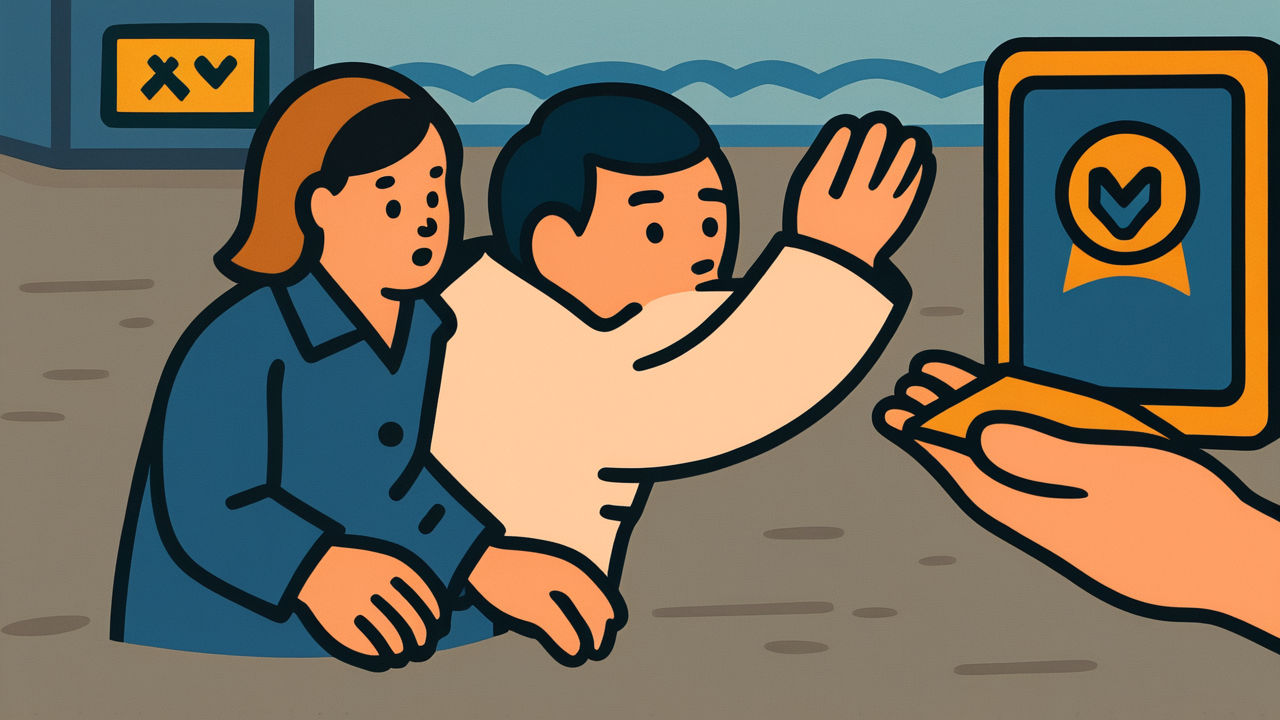How to Read “損して得取れ”
Son shite toku tore
Meaning of “損して得取れ”
“Take loss and take gain” means accepting small immediate losses in order to obtain greater profits or results in the future.
This proverb teaches the importance of judging things from a long-term perspective rather than a short-term one. In business, it represents the idea that by temporarily cutting profits to provide good service to customers, you build trust, which ultimately leads to continuous transactions and acquiring new customers through word-of-mouth. The same applies to human relationships – by being patient or making concessions, relationships deepen, ultimately becoming beneficial for oneself. Even today, this way of thinking is valued in various fields such as investment, human resource development, and brand building.
Origin and Etymology
“Take loss and take gain” is said to have originated from the wisdom of merchants during the Edo period. In this era, trust was paramount in business, and there was a culture that valued long-term relationships over immediate profits.
Edo merchants cherished the spirit of “sanpo yoshi” (good for all three parties), idealizing business that satisfied the seller, buyer, and society as a whole. Therefore, the idea of sometimes accepting losses to please customers, ultimately gaining great trust and profit, was deeply rooted.
This phrase became widely known because it was passed down as merchant instruction books and family precepts of merchant houses. Particularly among Omi merchants and Osaka merchants, such long-term business principles were highly valued.
Moreover, this way of thinking was understood not merely as a business technique, but as a life philosophy applicable to human relationships in general. The idea of accepting temporary losses to gain greater trust and profit is deeply connected to the Japanese spirit of mutual assistance, expressed in the saying “kindness is not for others’ sake alone.”
Interesting Facts
Edo period merchants had a concept called “son-ryō” (loss allowance) to practice this teaching. This was a system of intentionally budgeting for losses, used for customer care and emergency responses.
The modern business concept of “Customer Lifetime Value (LTV)” truly connects with the spirit of “Take loss and take gain.” The idea of valuing what one customer brings over their lifetime can be said to be a modern inheritance of Edo merchants’ wisdom.
Usage Examples
- Spending time on new employee training is the “Take loss and take gain” approach
- We went into the red with price cuts, but let’s take the long view with “Take loss and take gain”
Modern Interpretation
In modern society, “Take loss and take gain” has come to have more complex and diverse meanings. In the digital age, this way of thinking is gaining attention in new forms.
IT companies commonly use the “freemium” model, where they provide free services to gather users and monetize later. Platforms like YouTube and Instagram also employ the “Take loss and take gain” strategy by initially providing services at a loss and later earning profits through advertising revenue once user numbers increase.
However, with intensified competition in modern society, this way of thinking is sometimes misunderstood. It may be used as a spiritual argument that “patience will be rewarded,” becoming a tool to justify unfair working conditions or unreasonable demands.
In the investment world, there’s a concept called “cutting losses,” where accepting small losses avoids large ones – this represents a modern interpretation of “Take loss and take gain” from a different angle, requiring simultaneous short-term judgment.
What’s important is not blindly accepting losses, but making strategic judgments.
When AI Hears This
Behavioral economics research shows that humans experience “loss aversion bias” – we feel the pain of losing something about 2.5 times more intensely than the joy of gaining the same amount. In other words, the sadness of losing $100 is far greater than the happiness of gaining $100. This psychological trait is thought to have evolved because it provided survival advantages.
Yet “lose to gain” advocates for behavior that directly contradicts this instinct. Why would such an “unnatural” teaching emerge and persist through generations?
The answer lies in the complexity of human society. While loss aversion may be rational at the individual level, it sometimes becomes a hindrance in social interactions. Consider companies that fear price competition and maintain their prices, only to lose market share as a result. By trying to avoid short-term “losses,” they end up inviting long-term “major losses.”
What’s fascinating is that this proverb isn’t mere motivational rhetoric – it shares the same fundamental structure as what modern game theory calls “cooperative strategy” and “the logic of upfront investment.” Ancient wisdom managed to articulate insights that overcome human cognitive biases without any scientific backing. This demonstrates humanity’s unique ability to use reason to control instinct.
Lessons for Today
“Take loss and take gain” teaches modern people that life’s richness cannot be measured by short-term profit and loss calculations. The difficulties and patience you face now might actually be investments in your future.
Modern society tends to demand immediate results, but truly valuable things are nurtured over time. Study time for skill improvement, thoughtfulness to deepen human relationships, lifestyle changes for better health. These may not provide immediate returns, but in the long run, they will surely enrich your life.
What’s important is not just enduring, but discerning whether that “loss” has meaning. Consider whether that choice truly connects to the future in light of your values and goals. And once you’ve made your choice, have the composure to enjoy the process itself. Life has value not only in results but in the journey itself.



Comments